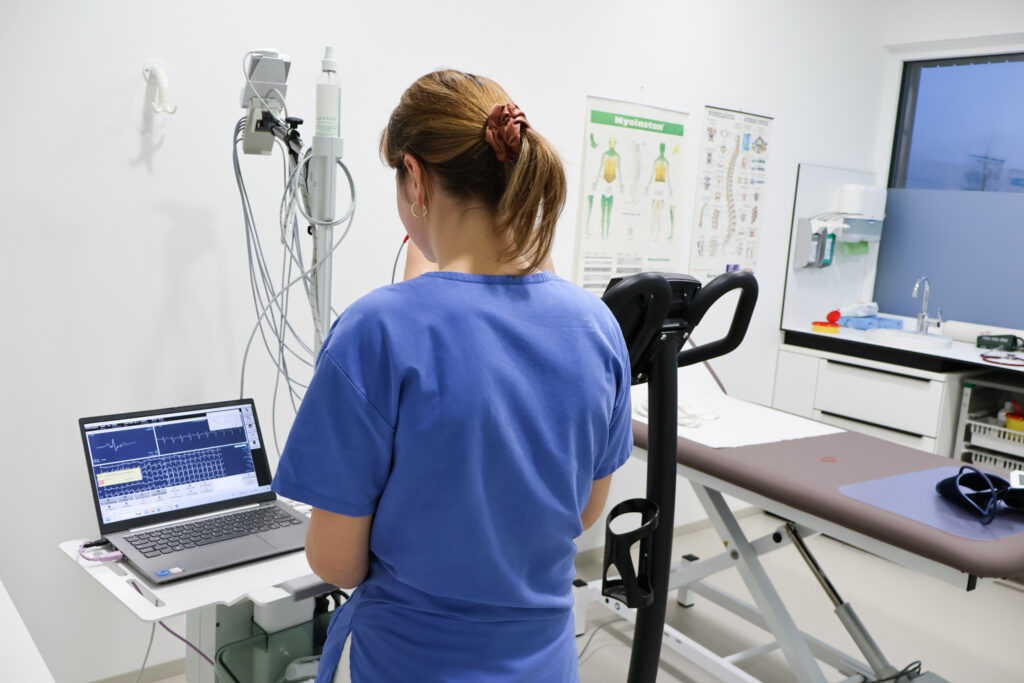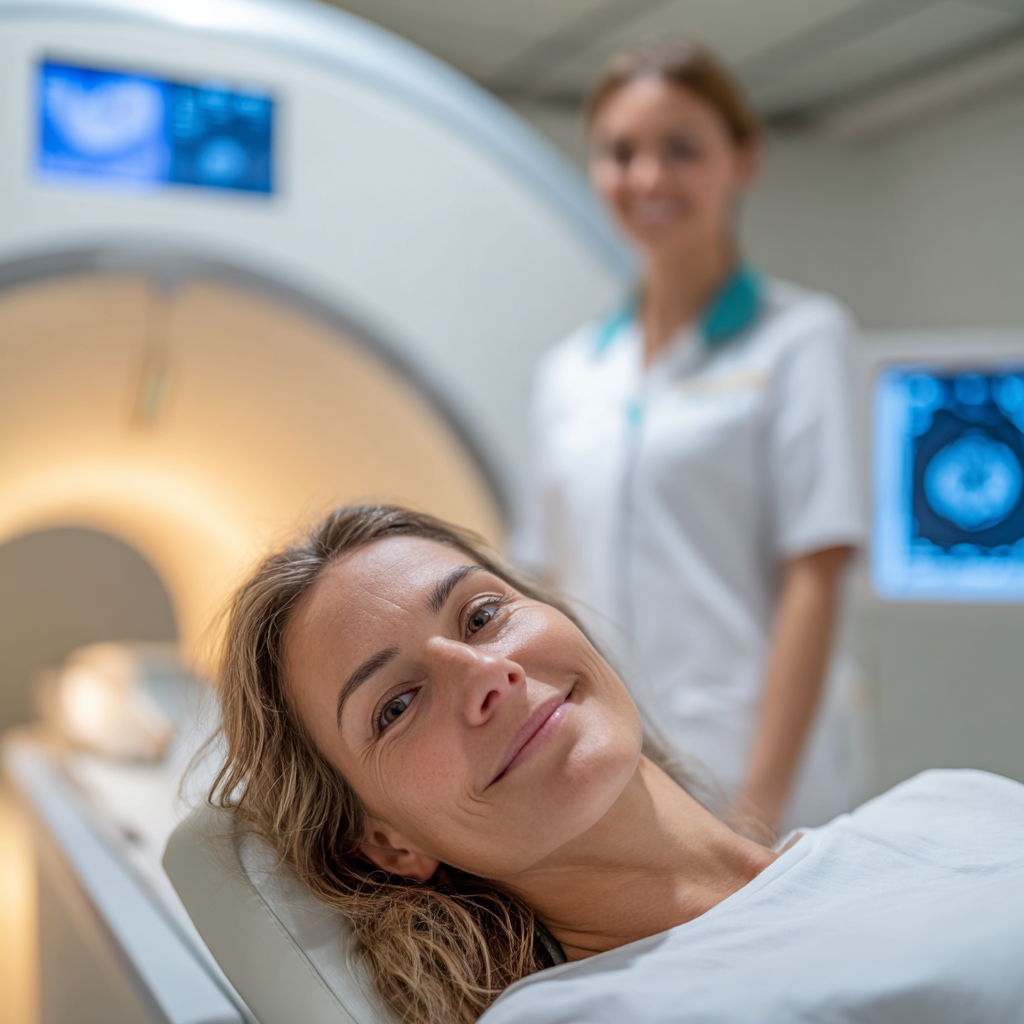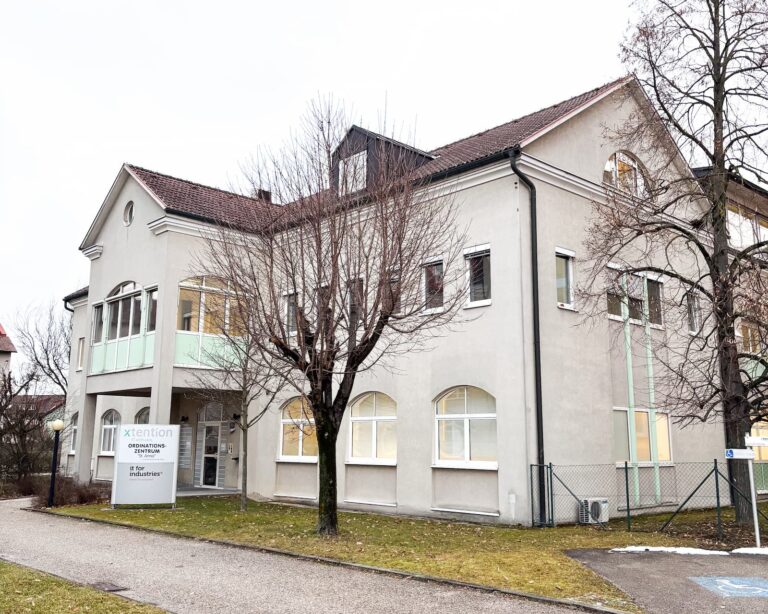Exercise ECG for heart and lung function analysis
Ergometry, also known as exercise ECG, is carried out at our health and primary care centers. This procedure is used to measure your physical performance under controlled stress and is primarily used in cardiology and pulmonology. Important bodily functions are monitored, in particular the electrical activity of the heart using an ECG.
Why is ergometry useful?
Ergometry plays a crucial role in the diagnosis of heart disease, especially in the early detection of coronary heart disease (CHD). It helps to analyze exercise-related changes in the cardiovascular system and determine whether your heart is being supplied with sufficient oxygen during physical exertion.
An exercise ECG is also used to monitor existing cardiovascular diseases, assess the success of therapy and develop customized treatment strategies. It is also used in sports medicine to check fitness and exercise capacity.
How does ergometry work?
During the examination, you will be subjected to physical exertion on a bicycle ergometer or treadmill, whereby the intensity of the exertion is gradually increased. At the same time, your ECG, blood pressure and, if desired, your oxygen saturation will be continuously monitored. The aim is to detect possible circulatory disorders of the heart muscle or other abnormalities during exercise.
When is ergometry recommended?
An exercise ECG is particularly useful for:
✔ Suspicion of coronary heart disease (CHD)
✔ Clarification of exercise-related cardiac arrhythmias
✔ Examination of physical resilience, e.g. after a heart attack
✔ Checking the effectiveness of existing cardiac therapy
✔ Determining individual performance in sports medicine
Important notes on preparation
As a rule, no special preparation is required. However, you should not perform the ergometry on an empty stomach. Light meals are permitted, but drinks with a high caffeine content or nicotine should be avoided.
Your appointment at PVZ-Perg
Our specialists at the PVZ-Perg will provide you with comprehensive advice and carry out the ergometry in a pleasant environment. After the examination, we will discuss the results with you and, if necessary, initiate further diagnostic or therapeutic measures.
Make an appointment for ergometry – for a well-founded assessment of your heart health and physical performance.










